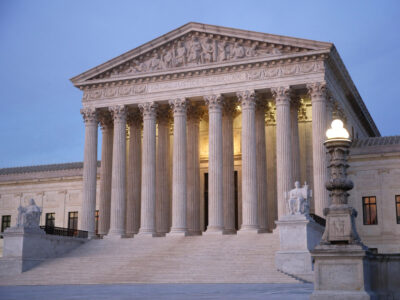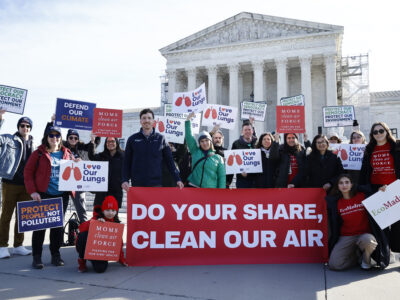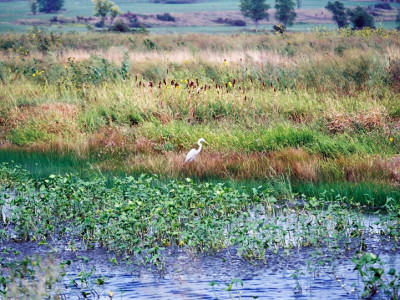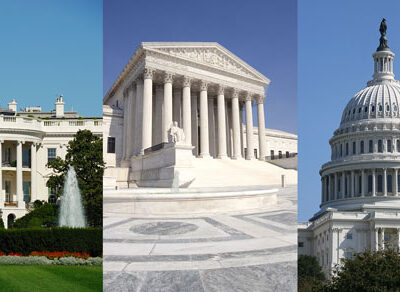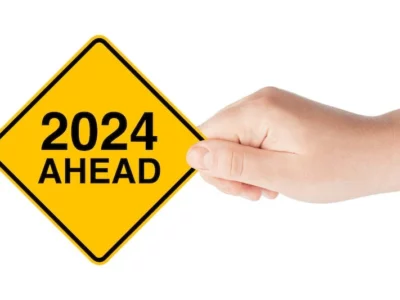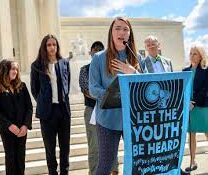U.S. Supreme Court
U.S. Supreme Court Revisits, Tightens Regulatory Takings Limits on Land Use Regulation
California Homeowner’s Takings Challenge to County’s Traffic Impact Fee Heads Back to State Court
On April 12th, the U.S. Supreme Court revisited a constitutional doctrine near and dear to its institutional heart: when and under what circumstances does a land use permit condition violate the Fifth Amendment’s Takings Clause? In yet another “regulatory takings” case from California, the Supreme Court wound up not answering that precise question. Instead, the …
CONTINUE READINGChevron Gets the Headlines, But State Farm May Be More Important
The abortion pill case could undermine the authority of agency’s expert judgments.
The Chevron doctrine requires judges to defer to an agency’s interpretation of a statute if that interpretation is reasonable. The State Farm case, which is much less widely known, requires courts to defer to an agency’s expert judgment unless its reasoning has ignored contrary evidence or has a logical hole. As you probably already know, …
Continue reading “Chevron Gets the Headlines, But State Farm May Be More Important”
CONTINUE READINGThe Problems with the SCOTUS ‘Good Neighbor’ Arguments
Guest contributors Megan Herzog and Sean Donahue write that last week’s argument in the case of EPA’s Good Neighbor Rule shows the perils of agency rulemaking cases on the Supreme Court’s shadow docket.
Megan M. Herzog (former Emmett/Frankel Fellow at UCLA School of Law 2012-2016) and Sean H. Donahue are partners at Donahue, Goldberg & Herzog, which represents the Environmental Defense Fund, a Respondent-Intervenor in the Good Neighbor Rule litigation. Last Wednesday, the Supreme Court did something it has done only three times in the last half-century—it heard …
Continue reading “The Problems with the SCOTUS ‘Good Neighbor’ Arguments”
CONTINUE READINGThe Long Life and Sudden Demise of Federal Wetlands Protection
Here’s a timeline of events.
It’s no wonder that one EPA staffer’s reaction to the Supreme Court ruling was a single word: “Heartbroken.” In 2023, the Supreme Court ended fifty years of broad federal protection to wetlands in Sackett v. United States. It is only when you look back at the history of federal wetland regulation that you realize just …
Continue reading “The Long Life and Sudden Demise of Federal Wetlands Protection”
CONTINUE READINGInterstate Pollution and the Supreme Court’s “Shadow Docket”
The Court considers whether to stay an EPA plan in light of changed circumstances.
Later this month, the Supreme Court will hear oral argument about whether to stay a plan issued by EPA to limit upwind states from creating ozone pollution that impacts other states. As I wrote before the Court decided to hear the arguments, the issues here seem less than earthshaking, and for that matter, less than …
Continue reading “Interstate Pollution and the Supreme Court’s “Shadow Docket””
CONTINUE READINGPower Play: The Effects of Overruling Chevron
Who will win and who will lose if Chevron is overruled?
Next week, the Supreme Court will hear oral arguments about whether to overrule the Chevron doctrine. That doctrine allows administrative agencies that implement statutes to resolve ambiguities in those statutes. Overruling the doctrine would shift that power to courts. Institutionally, then, judges would be the big winners, with more sway over how laws are implemented. …
Continue reading “Power Play: The Effects of Overruling Chevron”
CONTINUE READINGThe U.S. Supreme Court & Environmental Law in 2024
Numerous Key Environmental Issues and Doctrines Will Confront the Justices This Year
As we begin 2024, it’s useful to identify and assess the many environmental issues that the U.S. Supreme Court has agreed to decide this year. It seems likely that the conservative majority of the justices will erode or, perhaps, dramatically jettison longstanding principles of environmental law and policy in the coming months. Summarized below are …
Continue reading “The U.S. Supreme Court & Environmental Law in 2024”
CONTINUE READINGMore Thrills and Chills Ahead! What to Expect in 2024
Here are the key events that will shape climate and energy policy.
We will face some important forks in the road in 2024 in terms of environmental law. Here are some of the upcoming forks. Who will be President in 2025? You probably don’t need reminding that 2024 is an election year. At this point, the election seems likely to be a replay of Biden versus Trump. …
Continue reading “More Thrills and Chills Ahead! What to Expect in 2024”
CONTINUE READING2023: The Good, the Bad, and the Ugly
Here’s what happened in the world of energy and environment.
A lot has happened this year, with political turmoil in the House of Representatives, indictments of Donald Trump and associates, and a close scrape with default on the national debt. In the world of energy and environment, the picture has also been mixed, but with more good than bad. The Good. California enacted two major …
Continue reading “2023: The Good, the Bad, and the Ugly”
CONTINUE READINGThe Children’s Crusade
The latest climate lawsuit is well intended, but it’s almost certain to lose and could do serious harm.
The Children’s Trust has filed another lawsuit, one that gives me serious qualms. I know their hearts are in the right place, but I wish they had thought twice about filing this case. I struggle to find any benefit from the litigation. It has no apparent chance of success. Worse, it disparages people in the …
Continue reading “The Children’s Crusade”
CONTINUE READING




